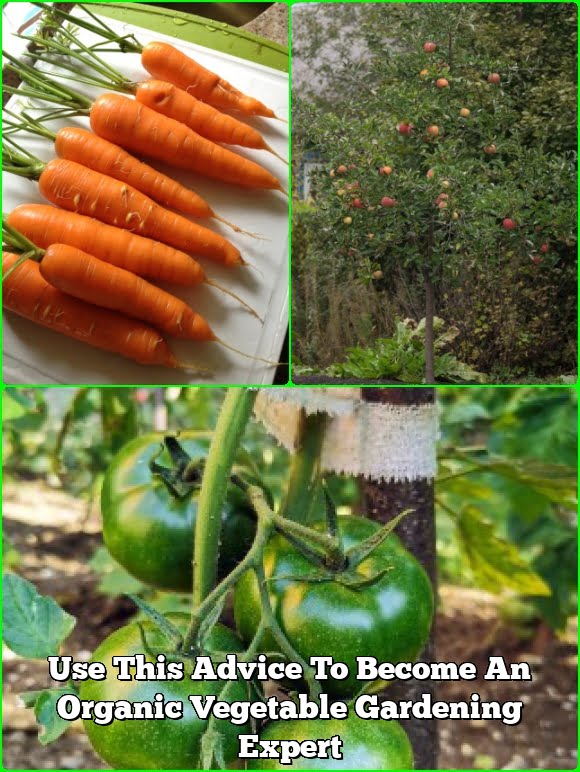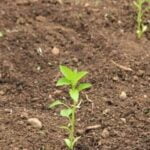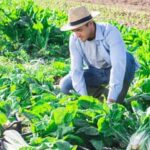Are you ready to take your vegetable gardening skills to the next level? In this article, we will delve into the world of expert vegetable gardening, providing you with valuable insights and tips to help you achieve success in your garden. Whether you are a seasoned gardener looking to elevate your knowledge or a beginner eager to learn from the best, this guide is tailored just for you.
Expert vegetable gardening entails more than just planting seeds and waiting for them to grow. It involves careful planning, consideration of various factors, and utilizing the right techniques to ensure a bountiful harvest. By following the advice of experienced gardeners, you can set yourself up for success and cultivate a thriving vegetable garden that will be the envy of your neighbors.
From choosing the right location for your garden to selecting the best vegetable varieties and mastering soil preparation techniques, this comprehensive guide will cover all aspects of expert vegetable gardening. Whether you have a small backyard or a spacious plot of land, these tips and strategies will empower you to become a confident and successful vegetable gardener in no time.
Stay tuned as we explore each step in detail and equip you with the knowledge needed to create a flourishing garden.
Choosing the Right Location for Your Vegetable Garden
When it comes to achieving success in expert vegetable gardening, one of the most crucial decisions you’ll make is choosing the right location for your garden. The location of your vegetable garden can significantly impact the health and productivity of your plants. There are several factors to consider when selecting the perfect spot for your garden.
First and foremost, sunlight is essential for the growth of most vegetables. Choose a location that receives at least 6-8 hours of direct sunlight each day. If your garden is shaded for a significant portion of the day, consider planting shade-tolerant vegetables such as lettuce or spinach. Additionally, make sure to avoid areas with strong winds that can damage young plants or dry out the soil too quickly.
Another important factor to consider when choosing a location for your vegetable garden is water availability. Make sure your garden is located near a water source, such as a hose or sprinkler system, to make watering more convenient. Proper drainage is also vital, as standing water can drown plant roots and promote disease. Consider elevating raised beds or amending heavy clay soils with organic matter to improve drainage.
Lastly, proximity to your home is another factor to think about when selecting a location for your vegetable garden. Having easy access to your garden will make it more likely that you’ll spend time tending to and harvesting from it regularly.
This can help prevent neglect and ensure that you catch any issues early on. By considering these factors when choosing the right location for your vegetable garden, you’ll set yourself up for success as an expert vegetable gardener.
Essential Tools and Supplies for Expert Vegetable Gardening
Expert vegetable gardening requires the use of specific tools and supplies to ensure optimal plant growth and harvest. One essential tool for any vegetable gardener is a quality pair of garden gloves to protect your hands from cuts, scratches, and dirt. Additionally, a durable garden trowel or hand fork will come in handy for planting seeds and transplanting seedlings. A watering can or hose with a nozzle attachment is necessary for providing adequate moisture to your plants.
Another vital tool for expert vegetable gardening is a sharp pair of pruning shears for trimming plants and harvesting vegetables. Gardening gloves are another important item to protect your hands from thorns, prickly stems, and abrasive soil. A sturdy wheelbarrow can help you transport heavy loads of soil, compost, or harvested produce around your garden easily. Finally, having a reliable sunscreen and wide-brimmed hat will protect you from the sun’s harmful rays while you work in your garden.
In terms of supplies, expert vegetable gardeners should always have a stock of organic fertilizers, compost, and mulch on hand to nourish their plants and improve soil quality. Plant labels are useful for keeping track of different varieties planted in your garden. Additionally, row covers or netting can help protect your crops from pests and harsh weather conditions. With the right tools and supplies at your disposal, you’ll be well-equipped to succeed in your vegetable gardening endeavors.
| Essential Tools | Supplies |
|---|---|
| Garden gloves | Organic fertilizers |
| Garden trowel/hand fork | Compost |
| Pruning shears | Mulch |
Selecting the Best Vegetable Varieties for Your Garden
One important consideration when choosing vegetable varieties is your local climate and growing conditions. Different vegetables thrive in various climates, so it’s essential to select those that are well-suited to your region. Expert vegetable gardeners can recommend specific varieties that have been proven to perform well in your area, ensuring a higher chance of success in your garden.
In addition to climate considerations, personal preferences and dietary needs should also play a role in selecting vegetable varieties for your garden. If you have limited space, you may opt for compact or bush varieties of tomatoes or zucchini. On the other hand, if you enjoy experimenting with unique flavors, heirloom varieties could be a great choice. By consulting with an expert vegetable gardening specialist, you can make informed decisions that align with your goals and resources.
| Vegetable Variety | Recommended for Climate |
|---|---|
| Tomatoes | Warm climates |
| Kale | Cooler climates |
| Zucchini | Most climates |
Soil Preparation Techniques for Optimal Plant Growth
Testing and Amending Your Soil
Before planting your vegetable garden, it is essential to test and amend your soil to ensure optimal plant growth. Expert vegetable gardeners recommend conducting a soil test to determine its pH level and nutrient content. Testing kits are readily available at gardening centers or through local agricultural extensions.
Based on the results, you may need to adjust the soil’s pH using amendments such as lime or sulfur. Additionally, incorporating organic matter like compost or aged manure can improve soil structure and fertility.
Double-Digging and Raised Beds
Double-digging is a technique recommended by expert vegetable gardeners for improving soil aeration and drainage. This method involves digging a trench, loosening the soil at the base, adding compost or amendments, and then returning the topsoil back into place. Another popular option for soil preparation is using raised beds. Raised beds provide better control over soil quality, prevent compaction, and improve drainage. They are particularly beneficial in areas with poor soil conditions or limited space for gardening.
Crop Rotation for Soil Health
Expert vegetable gardeners understand the importance of crop rotation in maintaining soil health and preventing disease build-up. Rotating your crops each season helps replenish nutrients in the soil, reduces pest populations, and minimizes the risk of plant-specific diseases. By following a simple rotation schedule – moving plants within different families to new locations each year – you can improve overall soil fertility while promoting healthy plant growth in your vegetable garden.
By implementing these soil preparation techniques recommended by expert vegetable gardeners, you can create an ideal growing environment for your vegetables to thrive. Testing and amending your soil, utilizing double-digging or raised beds, and practicing crop rotation are essential steps towards achieving bountiful harvests from your garden. Remember that healthy soil is the foundation of successful vegetable gardening, so investing time in preparing it properly will pay off in abundance throughout the growing season.
Watering and Fertilizing Your Vegetable Garden
Watering and fertilizing are crucial components of successful vegetable gardening, and mastering these tasks can truly take your garden to the next level. Expert vegetable gardeners emphasize the importance of providing adequate water and nutrients to your plants to ensure healthy growth and abundant harvests.
When it comes to watering your vegetable garden, consistency is key. It’s essential to establish a regular watering schedule, especially during hot summer months when plants require more moisture.
The best time to water is early in the morning or late in the evening to minimize evaporation and ensure that your plants have enough water throughout the day. Overwatering can lead to root rot and other issues, so it’s important to strike a balance and avoid waterlogging the soil.
In terms of fertilizing, expert vegetable gardeners recommend using organic fertilizers that enrich the soil without causing harm to beneficial organisms. Before applying any fertilizer, it’s essential to test your soil to determine its nutrient levels and pH balance. This will help you choose the right type and amount of fertilizer for your specific needs.
Additionally, it’s crucial not to over-fertilize, as this can lead to nutrient imbalances and potentially harm your plants rather than help them thrive. By following these dos and don’ts of watering and fertilizing, you’ll be well on your way to becoming an expert vegetable gardener.
Pest and Disease Management Strategies for Healthy Plants
Pest and disease management is a crucial aspect of maintaining a healthy vegetable garden. Expert vegetable gardeners have honed their skills over the years, developing effective strategies to combat common pests and diseases that can threaten plant health. By incorporating their insights into your gardening routine, you can proactively protect your plants and ensure a bountiful harvest.
Identifying Common Pests and Diseases
One of the first steps in pest and disease management is being able to identify the culprits that may be causing harm to your plants. Some common pests include aphids, caterpillars, and spider mites, while diseases like powdery mildew and blight can also wreak havoc in the garden. Expert vegetable gardeners recommend regularly inspecting plants for any signs of damage or unusual growth patterns to catch issues early on.
Natural Remedies and Prevention Methods
When it comes to managing pests and diseases in the vegetable garden, many expert gardeners prefer using natural remedies and prevention methods. For example, planting companion plants that repel pests or attract beneficial insects can help deter unwanted visitors. Additionally, creating barriers like floating row covers can prevent pests from accessing vulnerable plants. Organic sprays made from ingredients like neem oil or garlic can also be effective in controlling certain pests.
Integrated Pest Management Techniques
Integrated Pest Management (IPM) is a holistic approach to pest control that combines multiple strategies to minimize damage to crops. Expert vegetable gardeners often employ IPM techniques, which may include crop rotation, trap cropping, biological controls (such as releasing ladybugs), and using resistant plant varieties. By diversifying pest management tactics, you can create a more resilient and healthy garden ecosystem that is better equipped to withstand potential threats.
Harvesting and Preserving Your Bountiful Vegetable Garden
Once your vegetable garden has flourished under your expert care, it’s time to reap the rewards of your hard work. Harvesting your vegetables at the right time is crucial for their flavor and nutritional value. To ensure you are making the most of your bountiful harvest, follow these expert tips:
- Harvest early in the morning when temperatures are cooler to retain freshness.
- Use sharp and clean tools to prevent damage to plants and facilitate a clean cut.
- Regularly check for ripe vegetables by gently inspecting them for color, size, and firmness.
After harvesting, it’s essential to preserve your vegetables properly to enjoy them beyond the growing season. Whether you choose canning, freezing, or dehydrating, here are some expert tricks to make the most of your harvest:
- Canning: Invest in a pressure canner for low-acid foods like beans and carrots for safe preservation.
- Freezing: Blanch vegetables before freezing to retain their color, texture, and flavor for an extended period.
- Dehydrating: Dry herbs and certain vegetables like tomatoes or peppers for flavorful additions to dishes year-round.
By employing these expert tips and tricks for harvesting and preserving your vegetable garden produce, you can enjoy the fruits of your labor long after the growing season ends. Experiment with different preservation methods to find what works best for each type of vegetable in your garden.
Conclusion
In conclusion, becoming an expert vegetable gardener is a rewarding journey that requires dedication, knowledge, and practice. By following the tips and insights shared throughout this guide, you are well-equipped to set yourself up for success in your gardening endeavors.
Remember that choosing the right location, using essential tools and supplies, selecting the best vegetable varieties, preparing the soil properly, watering and fertilizing correctly, and managing pests and diseases effectively are all crucial steps in achieving a flourishing vegetable garden.
Listening to advice from expert vegetable gardeners can provide valuable information and guidance as you navigate through the challenges of maintaining a healthy garden. Their experience and wisdom can help you avoid common pitfalls and optimize your efforts. By applying their strategies for pest management, disease prevention, harvesting techniques, and preservation methods, you can increase the productivity of your garden while enjoying a bountiful harvest.
As you continue to hone your skills and expand your knowledge in vegetable gardening, remember that patience is key. Rome wasn’t built in a day, and neither is a thriving garden. Take the time to learn from your experiences, make adjustments along the way, and savor the joys of gardening.
With dedication and perseverance, you have the potential to evolve from a novice gardener to an expert vegetable gardener capable of cultivating a vibrant and sustainable garden for years to come. Start small but dream big – with time and effort on your side, there’s no limit to what you can achieve in your vegetable-growing journey.
Frequently Asked Questions
What Are the Hardest Vegetables to Grow?
Some of the hardest vegetables to grow include asparagus, artichokes, and Brussels sprouts. These vegetables require specific conditions, such as long growing seasons or acidic soil, making them more challenging for beginners.
What Is the Best Layout for a Vegetable Garden?
The best layout for a vegetable garden depends on factors like available space and sunlight. A common layout is the raised bed garden, which helps with drainage and prevents soil compaction. Other options include container gardening or square foot gardening.
Is It Cheaper to Buy Vegetables or Grow Them?
In general, it can be cheaper to grow your own vegetables compared to buying them at the store. However, this depends on various factors like initial setup costs, ongoing maintenance expenses, and the types of vegetables you choose to grow. Factors such as water usage and fertilizer can also affect cost-effectiveness.

If you’re looking to get into vegetable gardening, or are just looking for some tips on how to make your current garden better, then you’ve come to the right place! My name is Ethel and I have been gardening for years. In this blog, I’m going to share with you some of my best tips on how to create a successful vegetable garden.





